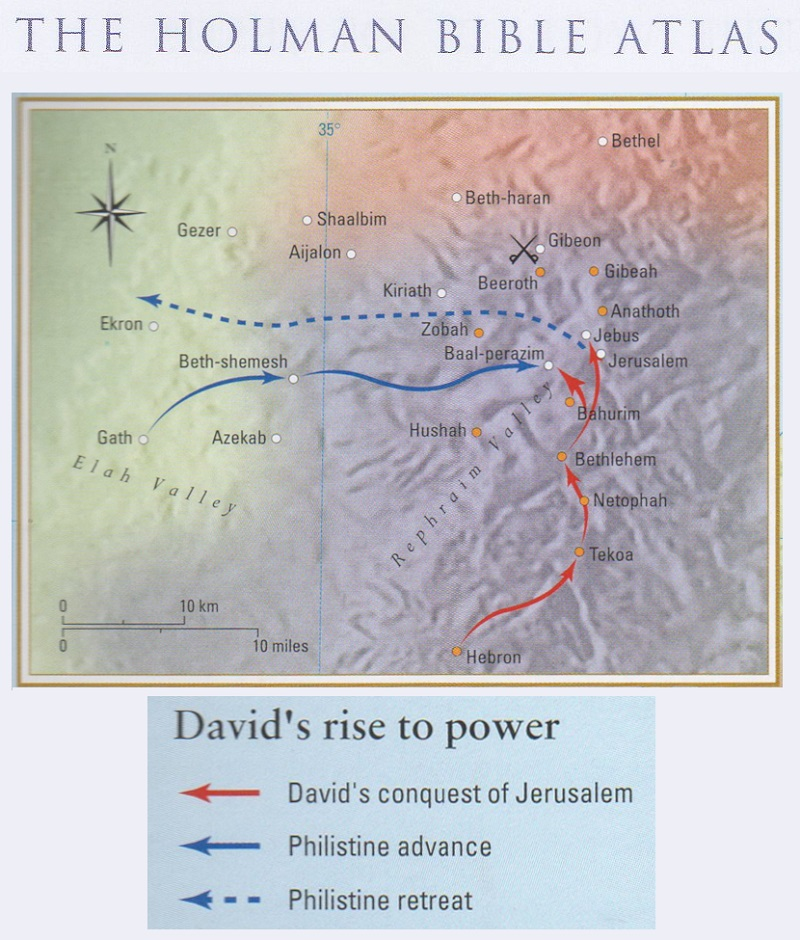Jebus was a Canaanite stronghold in the hills between Bethel & Jerusalem. In King James, the town was called Jebusi in Joshua 18 verses 16 and 28. Genesis 10:16 & 1 Chronicles 1:14 state that Ham's son, Canaan, was the "father" (ancestor) of the Jebusites. Numerous references list the Jebusites among the list of Canaanite nations:
Joshua 10 records the region where Jerusalem resided as being part of the Amorites. Five Amorite kings including Adonizedek (NIV calls him Adoni-Zedek), the king of Jerusalem, attacked Gibeon after Joshua & the Israelites were tricked into a peace treaty with the city's inhabitants. The 5 kings were defeated and killed. Joshua 10:11-13 states that God sent a severe hailstorm that whittled down the enemies and the sun stood still for the duration of a day until the Israelites were victorious. Verse 13 says this was recorded in the "Book of Jashar".
Men of Judah attacked and captured Jerusalem in Judges 1:8. Judges 1:21 and Judges 3:5 name the Canaanite peoples (including the Jebusites) that were spared and corrupted the Israelites. Jebus still existed in Judges 19:10-11. This same passage calls Jebus Jerusalem in verse 10 probably because those 2 towns were very close to each other.
King David captured the fortress of Zion (Jebusite stronghold) & fortified it because the Philistines tried to attack him after he was crowned king of Israel in 2 Samuel 5:6-8 and 1 Chronicles 11:4-6. 1 Chronicles 11:4 also calls Jebus Jerusalem.
One Jebusite is named in the Bible in 2 Samuel 24:16,18, 1 Chronicles 21 verses 15, 18 & 28
and 2 Chronicles 3:1.
King James calls him Ornan. NIV calls him Araunah.

During Solomon's reign, descendants of the Jebusites and other remaining Canaanite peoples were used for slave labor as the Egyptians did to Jacob's family many yrs. earlier.
1 Kings 9:20-21 and 2 Chronicles 8:7 record this.
The last reference to these people appears in Zechariah 9:7.